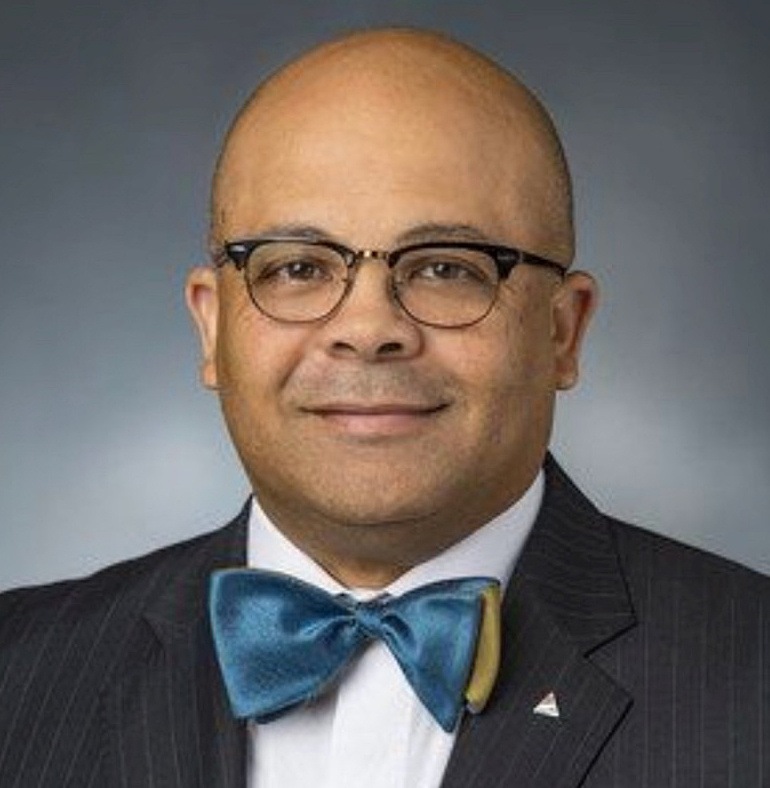Over the past 30-plus years, Mark Berry, Ph.D., has been no stranger to the faculty, staff, and alumni of the UAB School of Engineering. This year, however, he has been getting to know a different group of SOE stakeholders—undergraduate students.
Berry, who earned three degrees from UAB between 1997 and 2012, has been a frequent presence on campus through his roles as a student, advisory board member, guest speaker, and participant at alumni events. Starting last fall, Berry joined the School of Engineering in a new role as an adjunct professor in the Department of Mechanical Engineering where he teaches thermodynamics.
Considered by many to be one of the more difficult engineering courses, thermodynamics isn’t typically taught by part-time instructors. But with more than 30 years’ experience in the industry, Berry isn’t a typical adjunct.
“I come from a family of educators, so I have always had that desire to give back and to use my experience to help the next generation,” Berry said. “Thermodynamics was my favorite class as an undergraduate, and that was an area where I felt like I could really contribute as a professor.”
Berry, who currently works as Senior Vice President of Research and Development at Southern Company Services, pitched his idea in 2022 to School of Engineering Dean Jeff Holmes, M.D., Ph.D. He told him he was willing to commute to Birmingham from his home in Atlanta two days per week to teach the class, but there was one complication. Mechanical Engineering Professor Pasquale “PC” Cinnella, Ph.D., was already assigned to thermodynamics. Not only did Cinnella agree to turn his course over to an adjunct, Berry says Cinnella became an invaluable resource to him over these first two semesters.
“I consider PC to be my informal mentor,” Berry said. “He graciously allowed me to take on the class, but he has also been the person I go to for advice or with questions.”
Berry also credits Dean Holmes and Associate Dean Gregg Janowksi, Ph.D., for assisting with some of the administrative or technical issues of the day-to-day challenges of teaching. “It’s a lot more challenging than some might think,” said Berry. “From the outside looking in, I knew I had the experience and the qualifications to apply to this topic in a meaningful way. But putting together the presentations and using Canvas (the classroom software), and things like that are things I have had to learn. There is a lot more to it than just understanding the material.”
Indeed, according to Holmes, there were never questions about Berry’s mastery of the material or his leadership skills. “Mark has been a tremendous mentor to many younger engineers throughout his career. The chance for our students to learn from such an accomplished and passionate engineering leader – and a UAB alum to boot – is an extraordinary opportunity we could not pass up,” said Holmes. A quick glance at Berry’s resume shows that, In addition to his academic degrees, he has a number of professional licenses and certificates earned over decades in various leadership positions at Southern Company Services, Georgia Power, and Southern Research, to name just a few. He also served in the U.S. Navy, rising to the rank of Lieutenant while on active duty and later serving as a Lieutenant Commander in the Navy Reserves.
With all his success in the field, Berry says his desire to teach wasn’t a drastic shift in his focus. Rather, it stemmed from the examples set for him in his earliest memories. “My dad was one of six children, and four of them went on to become educators,” he said. “My aunt was the first to graduate college in the family. Then my dad started as a boy’s counselor at Phillips High School in Birmingham and went on to become superintendent of Fairfield City Schools. Even after he retired, he was an assistant instructor at Miles College. So I learned at an early age to value education.”
Those family values took Berry initially to Alabama A&M University, where he earned a B.S. in mathematics in 1991. Following his active-duty stint in the Navy, Berry enrolled at UAB, where he earned a B.S. in mechanical engineering in 1997 and an M.S. in 2000. He would add a Ph.D. in interdisciplinary engineering in 2012.
Looking back at his days as a student, Berry says the 21st-century classroom has a different culture than he remembers. “Students today are definitely not the same as my generation,” he said. “I have had to adjust my approach, understanding that a lot of my students are very outcome-focused. My goal is to help them achieve those outcomes while also understanding the underlying concepts. We want them to understand why things happen the way they do in the physical world, versus getting an answer that checks a box.” This difference caused Berry to adjust his approach early on. “I told them that this is not a math class,” he said. “Engineers may use math to solve problems, but math itself doesn’t solve problems. You may understand all the math, but you have to comprehend the engineering concepts before you can apply that math to solve the problems.”
Berry’s adjusted approach involves providing additional context so that students can see practical outcomes in academic exercises. In doing so, Berry says he believes he is appealing to their best instincts. “This generation wants to have an impact on the world. They don’t want to work 20 years to figure it out; they want to know that the work they’re doing is making a difference. As an instructor, I believe that they can, and it’s my job to show them how they can do it.”
